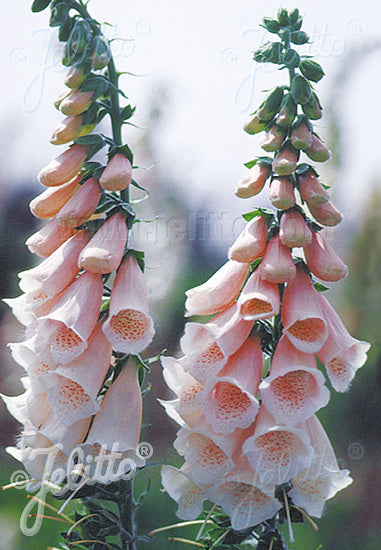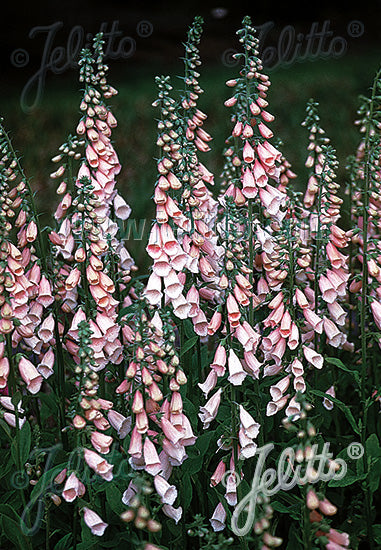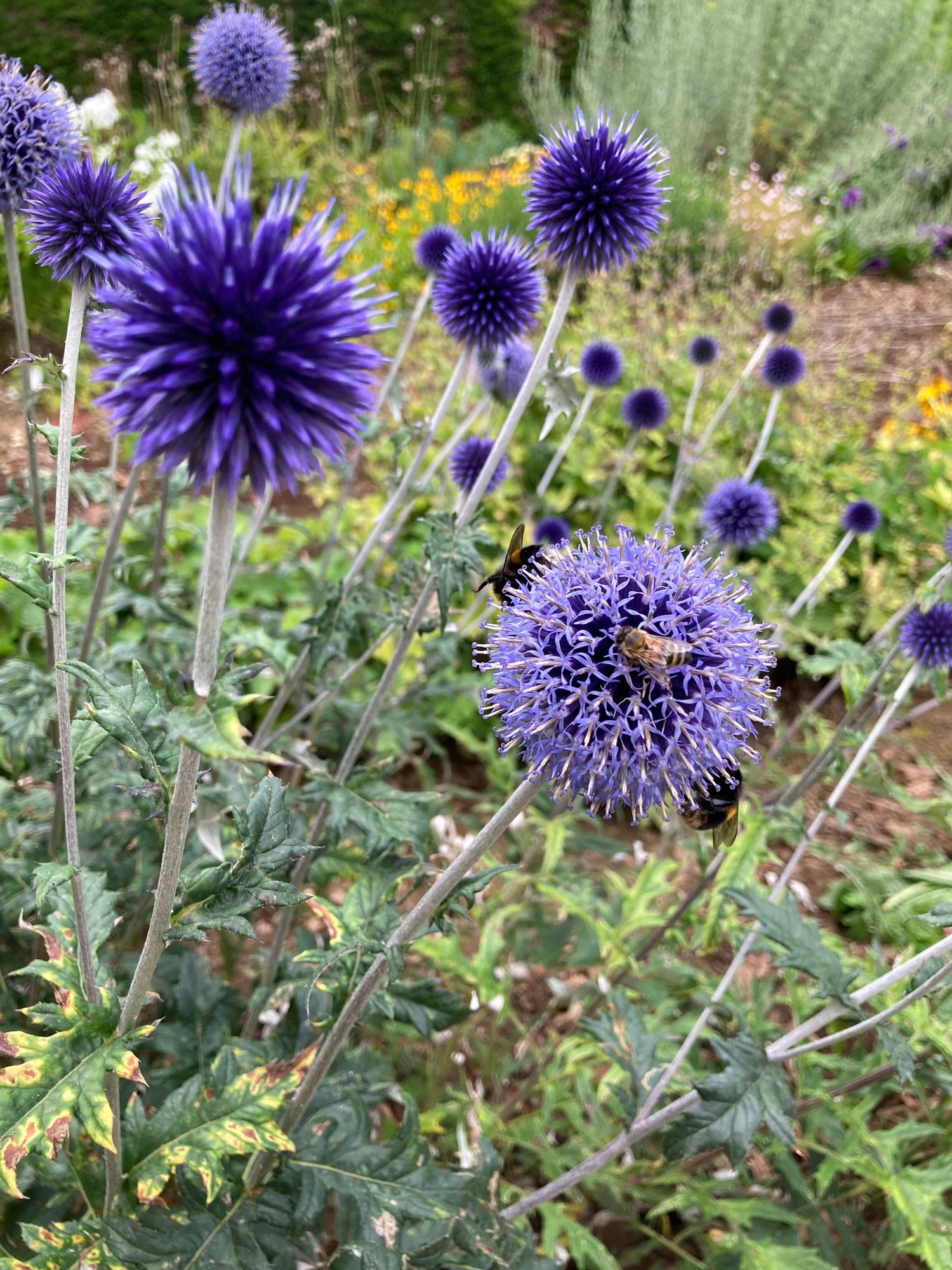Digitalis purpurea Sutton's Apricot
Digitalis purpurea Sutton's Apricot

Champion Plants
38 in stock
Couldn't load pickup availability
Digitalis purpurea Sutton's Apricot
Introducing Digitalis purpurea Sutton's Apricot, a unique and stunning addition to any garden. This fine selection boasts pastel, creamy apricot coloured flowers with darker pink speckling in the throat, creating tall spires that are perfect for the rear of the border. These beautiful flowers begin blooming in early summer and continue through August, reaching a height of 120cm. The pale green foliage adds to the overall charm of this plant.
- Height: Easily maintained to 1.5m
- Spread: Easily maintained to 50cm
- Foliage Colour: Pale green foliage
- Flower Colour: Large creamy yellow-pink bell shaped flowers on a upright spike
- Soil Type: Moist, well drained, sandy, loam, chalk, clay
- Position: Full Sun to full shade
- Hardiness: Hardy, H7 (-15 and lower)
- Type: Semi-evergreen biennial or Short lived Herbaceous perennial
Not only is Digitalis purpurea Sutton's Apricot visually appealing, but it is also easy to maintain. With a spread of only 50cm, it can fit into any garden space. This plant is a semi-evergreen biennial or short-lived herbaceous perennial, and is hardy up to H7 (-15 and lower) temperatures. It thrives in moist, well-drained soil and can be planted in full sun to full shade.
One of the most attractive features of Digitalis purpurea Sutton's Apricot is its ability to attract wildlife. The bell-shaped flowers are highly beneficial to insects, making it a great addition to any eco-friendly garden. These plants can be used to create interest in the mid-border, and are best planted in clumps or drifts. The flower spikes can even be left over winter to provide protection for insects and add interest to the garden.
Choose from a 9cm pot or 2 Litre pot when ordering this unique and beautiful plant. Digitalis (commonly known as the Foxglove) is a fantastic Genus of plants that are a must-have for any garden. Don't miss out on the opportunity to add this stunning variety to your collection.
Share


More Details
Why Choose Champion Plants?
We distinguish ourselves through our focus on quality and diversity, offering UK-grown plants in peat-free compost for Eco-conscious gardening. Order your plants now to see the difference that care and expertise make.
- Grown in the UK: All of our plants are cultivated right here in Somerset, ensuring they are perfectly suited to being planted throughout UK gardens.
- Peat-Free: Committed to sustainability, all our plants are grown in peat-free compost, supporting Eco-friendly gardening.
- Family Values: A family-run business for over 20 years, we bring you quality with a personal touch. Our love for gardening is reflected in every plant we sell.
- Diverse Selection: Whether you're looking to enhance your garden with perennials, shrubs, grasses, or exotic beauties, we have a vast array of plant categories to explore.
Delivery Details
- Same Week Dispatch: Orders before 09:00 AM Monday dispatch on Tuesday/Wednesday. Orders after this dispatch the next Tuesday/Wednesday.
- Stock: Plants are dispatched based on current stock, ensuring quick delivery without long waits.
- Dispatch Time: Allow up to 5 working days for dispatch, extended to 10 during peak times.
- Collection: Click and collect available; contact us to arrange.
- Free Delivery: On orders over £250, via courier or pallet depending on plant size.
- UK Shipping: Mainland UK only, excludes Channel Islands, PO Boxes, Scottish Highlands, Northern Ireland, BFPO.
- No International Delivery.
- Delivery Charges: Royal Mail 1st Class: £5.99 for parcels 0-0.99kg. 48HR Courier/Royal Mail 1st Class: £8.99 for parcels over 1kg.
- Local Delivery: £5 within 5 miles of North Perrott, including Montacute, Stoke Sub Hamdon, etc.
- Plants are securely packed according to type for safe transit.
- Unhappy with your plant? Contact us within 7 days of receipt. You cover return postage, and if the plant arrives back in good condition, we'll refund the purchase and initial delivery cost.
- 30-Day Guarantee: If your plant has any issues within 30 days of delivery, contact us for a replacement or refund. Proof of care (e.g., photos) may be required.
Contact Us
Contact Jason or Kate here at the nursery by:
Phone: 0146075732 or 07891661763
Email: orders@championplants.co.uk



